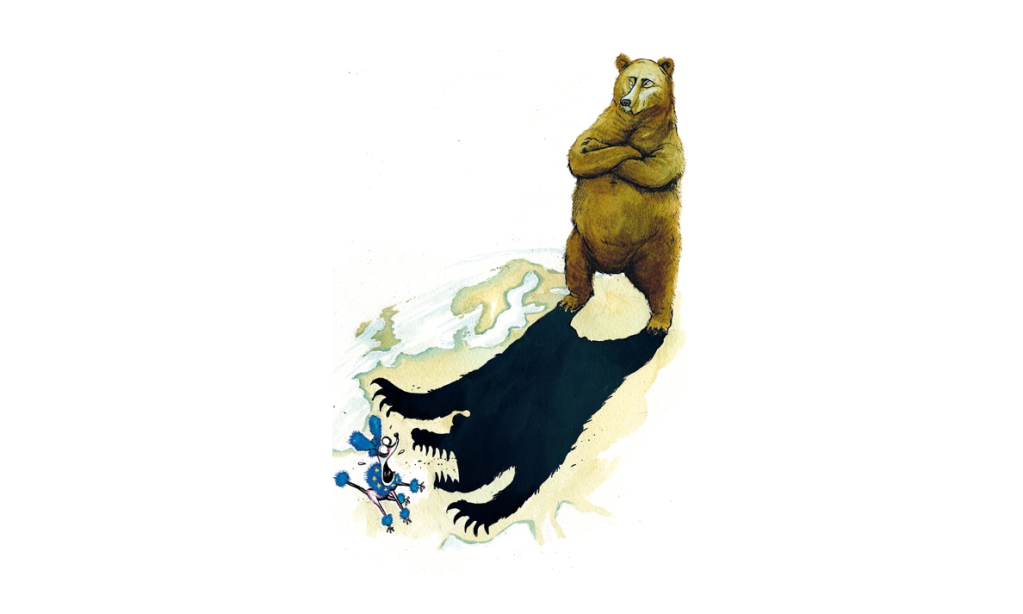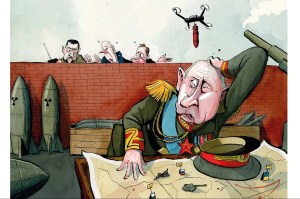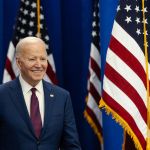Will the EU stand up for eastern Europe? This question is now being asked by Ukraine following the announcement of a deal between Germany and the US which paves the way for the completion of the controversial Nord Stream 2 gas pipeline between Russia and western Europe.
The deal reached by Merkel and Biden may have placated critics in Washington, but it has failed to allay eastern European concerns over the security implications of the project. The state most affected by Nord Stream 2, Ukraine, has now requested urgent consultations with the European Commission and the German government, adding an air of legal weight to its complaints by invoking provisions of its ‘Association Agreement’ with the EU. It suggests that by taking negotiations with the Biden administration into its own hands, the German government violated the EU’s requirement for ‘solidarity’ on potential energy crisis situations.
Nord Stream 2 promises eye-watering commercial benefits for Germany, the EU’s economic powerhouse, and Commission officials have insisted that they do not have the power to stop the project. But in central and eastern Europe the pipeline is seen as a direct threat to regional security. Ukraine fears Nord Stream 2 will leave the country vulnerable to Russian territorial aggression by ending Moscow’s reliance on Ukrainian infrastructure for the supply of natural gas to western Europe. Other eastern European countries are meanwhile worried that the project may eventually make the region’s gas supply dependent on the whim of Vladimir Putin.
A joint statement by Ukraine and Poland in response to the US-German deal said, ‘this decision has created political, military and energy threats for Ukraine and central Europe, while increasing Russia’s potential to destabilize the security situation in Europe, perpetuating divisions among Nato and European Union member states.’
For many eastern EU nations, Nord Stream 2 is emblematic of the West’s soft, self-interested stance on Russian influence in eastern Europe. And for an aspiring EU member such as Ukraine, the overriding of security concerns by western economic interests may prompt second thoughts about the true nature of its ‘Eastern Partnership’ intended to build bridges with Brussels.
The EU’s Eastern Partnership program is a vehicle for developing links with five of its eastern neighbors: Ukraine, Armenia, Azerbaijan, Georgia and Moldova. With the ultimate aim of further EU expansion, the initiative looks to demonstrate the benefits of EU membership by developing economic ties with those countries, while instilling the EU’s ‘fundamental values’ of ‘good governance, democracy, the rule of law and human rights’.
Yet Brussels’s reticence on Nord Stream 2 jars oddly with this explicitly interventionist agenda. While imposing heavy economic sanctions on Belarus’s pro-Kremlin government — which subsequently pulled out of the Eastern Partnership program — Brussels seems unconcerned by Ukraine’s increased vulnerability to invasion by Putin’s regime. Meanwhile, as the European Commission goes out of its way to intervene in the domestic affairs of Poland and Hungary on issues ranging from judicial reform to LGBT rights, its abdication of responsibility on Nord Stream 2 suggests a blasé attitude to security throughout the central and eastern Europe region.
All this suggests an EU too preoccupied with its own ideological purity to stand up for the region on the international stage. Or even, perhaps, an EU for which moral superiority serves as balm for the messy and complicated nature of affairs outside its borders. Along with Nord Stream 2, the EU remains unable to coordinate a unanimous stance on other key global issues, such as the Israeli-Palestine conflict and the Hong Kong security law.
Ukraine — and other countries in the EU’s Eastern Partnership program — surely have to ask whether this is the sort of club they want to belong to. Their ideological differences with Brussels remain stark, often making the misdemeanors of Hungary and Poland pale by comparison. On LGBT rights — arguably the most culturally divisive issue in the EU at the moment — two out of Europe’s three most anti-LGBT nations, Azerbaijan and Armenia, are Eastern Partners, according to ILGA Europe, the EU’s chief LGBT rights advocacy organization.
On energy, the EU demands that Eastern Partners conform with its own legislation. Yet in calling consultations on the completion of Nord Stream 2, Kiev has reminded Brussels that Eastern Partnership obligations run both ways. The EU cannot expect potential new members to make the significant reforms asked of them, while leaving them out in the cold in the face of potential aggression from Moscow. The German-US deal effectively tries to buy Ukrainian support through the establishment of a €59.3 million ($70 million) ‘Green Fund’ for the development of renewable energy infrastructure — but Ukraine wants to be treated less like a mere destination for EU aid, and more like a partner in its own right.
As eastern nations become increasingly frustrated with the EU’s interventionist attitude on a range of domestic political issues, Brussels’s reticence on Nord Stream 2 risks alienating them for the opposite reason. The project raises the question of whether or not the EU is an organization which accords equal weight to the concerns of eastern and western countries. So far, the answer has been a resounding no.
This article was originally published on The Spectator’s UK website.


















